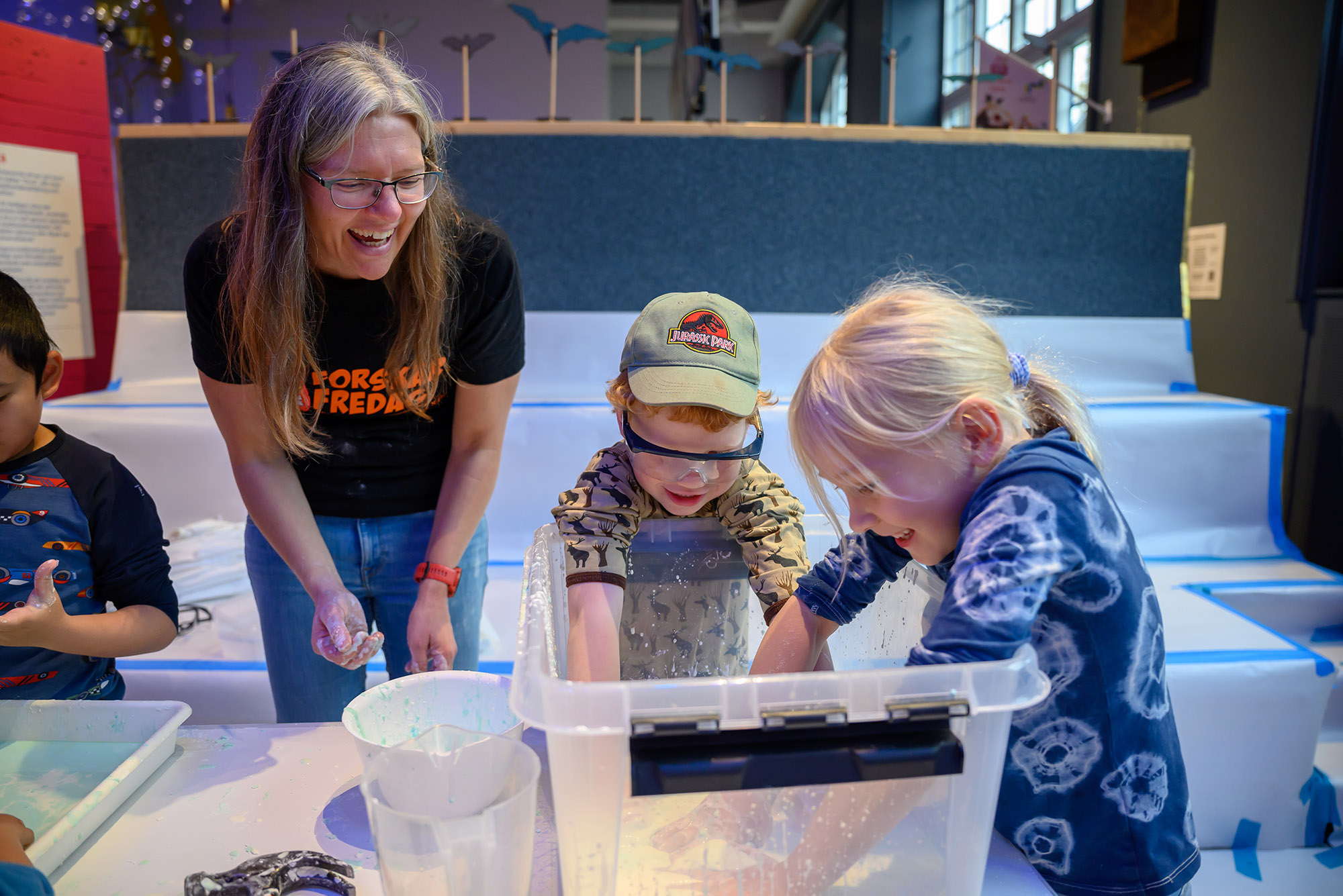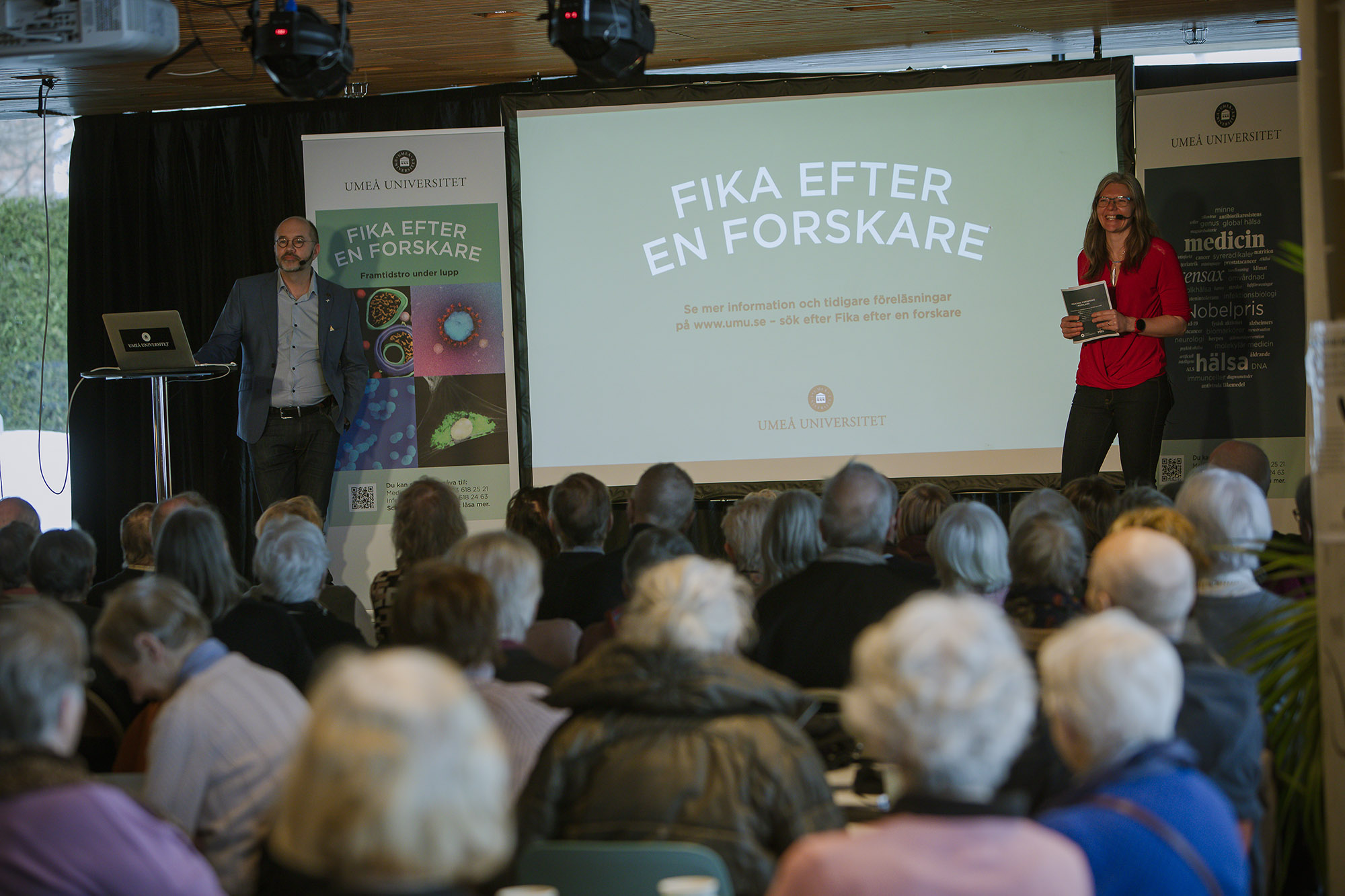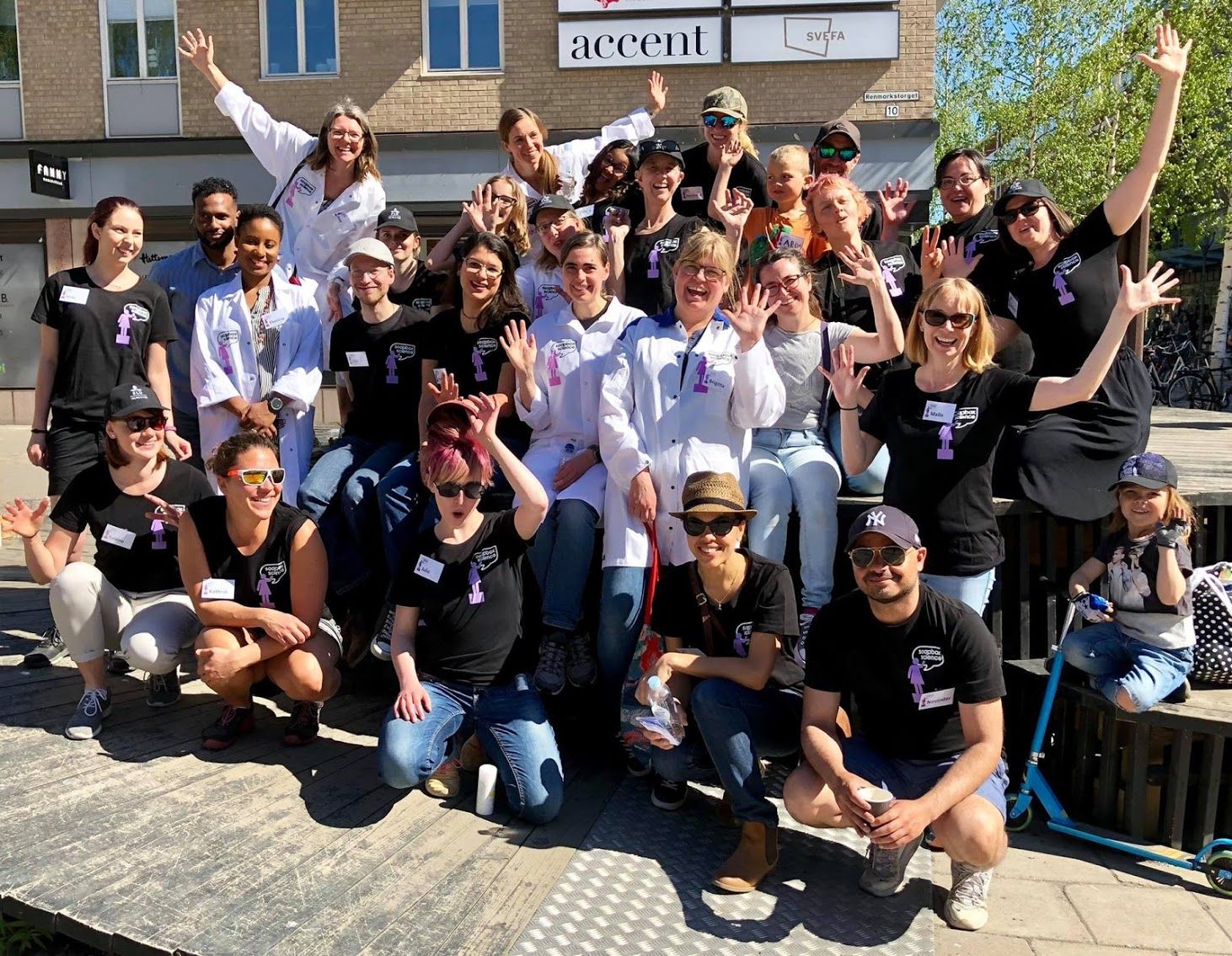
ForskarFredag 2024 at Curiosum Science centre at Umeå University. Photo: Gaby Beans
Last Friday, my kids and I hosted an experiment station at “ForskarFredag” at Curiosum Science Centre, which is part of European Researchers’ Night. We let kids experiment with a non-Newtonian fluid, a.k.a. play with a cornstarch and water mixture (pro-tip: add coloring agent for extra fun). My kids made a poster, invited all their classmates and together they explored all the different stations run by various researchers. It was a busy evening with 500 visitors, but I had a lot of fun talking to many enthusiastic kids and their parents.
Another part of ForskarFredag is Borrow a Researcher (Låna en Forskare). Over the past years, I have visited various schools to talk to children about what it is like to be a researcher and how they could become one. This initiative is succesful in reaching kids who might otherwise never meet a researcher. It is really easy to join: just write a short summary of your research and sign up online. You can select which age group you are willing to talk to, in which language(s) and which times you would be available.
I am also the chair of the Information committee of the Faculty of medicine at Umeå University that organizes the popular science lecture series “Fika efter en Forskare” in Väven in central Umeå. These are 7-minute presentations in Swedish with three different researchers, followed by discussions with the audience and we usually have full-house (150 people per session).

Fika efter en Forskare. Photo: Mattias Pettersson
I have also been a speaker for “Pint of Science” and even stood in a labcoat on a padestal in the city center for Soapbox Science.
Through all these activities I have improved my ability to explain my research quickly and clearly and they have given me new enthusiasm for research. However, they also take a considerable amount of my time with frankly often no clear benefits – so why do it? While officially part of every researchers job (samverkan/tredje uppgiften), I did not think the effort balanced the benefits until after my children were born. Then my perspective changed: I wanted to inspire my kids and I was confronted with misinformation in my personal circle. A triggering event was when I met parents at daycare who had chosen not to vaccinate their children.
Engaging in science communication has not only enriched my own understanding and enthusiasm for research but also allowed me to inspire the next generation and combat misinformation. By sharing our knowledge and passion, we can build a more informed and scientifically literate society. Therefore, I encourage all researchers to take part in these initiatives. If you would like to present at Fika efter en Forskare or want to know more about my experiences, please contact me!
Together, we can make a difference.

The Soapbox group.

